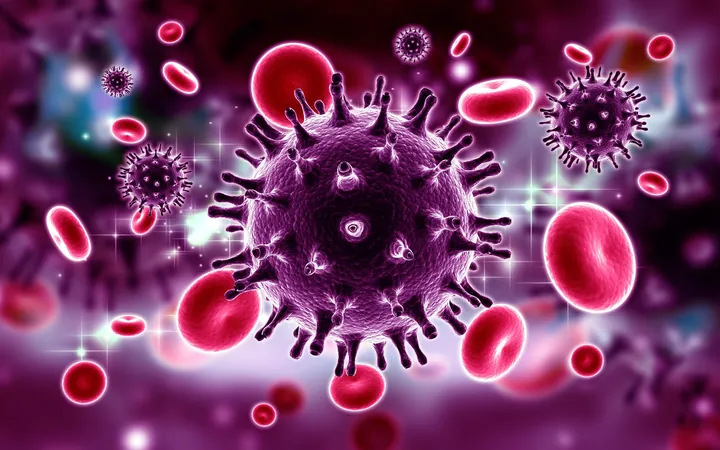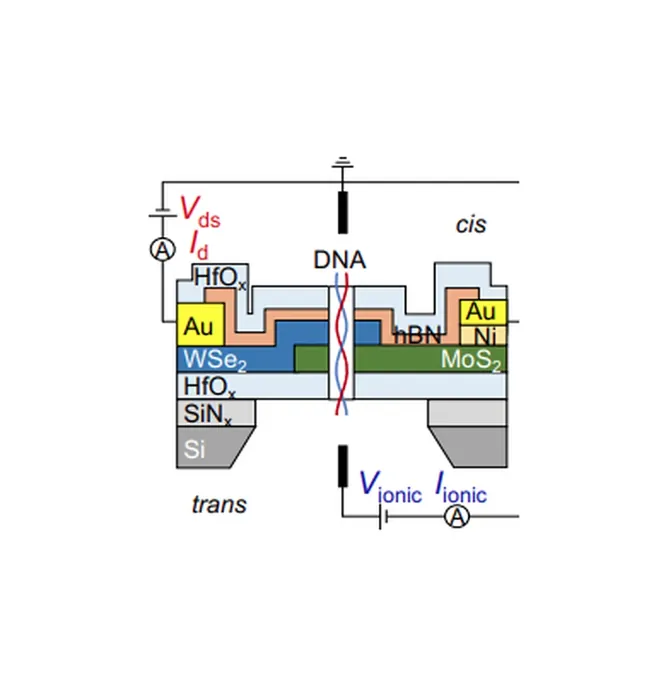
Shocking Link Revealed: High Prevalence of Long COVID in HIV Patients!
2025-01-15
Author: Nur
Recent Findings
Recent findings from a comprehensive review published in eClinicalMedicine have unveiled a startling connection between HIV and the prevalence of long COVID. As researchers dive deeper into this critical issue, it's clear that further investigations are paramount to fully understand how HIV may exacerbate the effects of long COVID.
What is Long COVID?
The World Health Organization (WHO) defines long COVID as the persistence of COVID-19 symptoms for a minimum of 12 weeks following infection, without an alternative diagnosis. Common symptoms include debilitating fatigue, cognitive difficulties, and breathlessness. With around 39 million individuals globally living with HIV, their compromised immune systems potentially heighten their risk for prolonged health complications.
Current Knowledge
Current knowledge indicates that HIV patients on antiretroviral therapy may face a reduced risk of severe COVID-19 outcomes. However, the long-term implications—specifically, the presence of long COVID—remain a largely unexplored territory. The primary goal of the review was to collate data concerning the prevalence of long COVID within the HIV population.
Data Collection and Analysis
Researchers meticulously gathered data from multiple robust databases, including EMBASE, MEDLINE, CINHAL, PubMed, and CENTRAL, analyzing studies up until June 14, 2024. Their focus was on adults living with HIV who had also experienced COVID-19, contrasting results with those of non-HIV counterparts.
Study Overview
From the analyses, eight studies—three from Europe, two from North America, two from Africa, and one from Asia—were included. Participants numbered an average of 267 and had a median age of 50, with women representing roughly 35%. Notably, most participants had previously been diagnosed with COVID-19.
Prevalence Estimates
The synthesis of prevalence estimates revealed that a staggering 43% (95% CI, 32% to 54%) of adults living with HIV may experience long COVID symptoms, suggesting a critical public health concern. Interestingly, those studies adhering to the WHO's 12-week diagnostic criteria still showed a consistent prevalence of 42% (95% CI, 27% to 58%).
Correlation Between HIV and Long COVID
While four studies specifically assessed the correlation between HIV and long COVID, the findings indicated inconclusive results. The estimated odds ratio (OR) was 1.16 (95% CI, 0.58-2.29), which did not establish a strong correlation. However, when adjusting for confounding factors, the odds dramatically increased, with an OR of 2.21 (95% CI, 1.12-4.36), indicating that those with HIV are more susceptible to developing long COVID.
Limitations and Concerns
Despite these findings, there are notable limitations. The review's generalizability may be affected by demographic factors, as many participants were virally suppressed and part of specific surveillance cohorts. Additionally, the higher CD4 counts observed in these individuals do not reflect the situation of those with severely low counts, who could be at a much greater risk for adverse outcomes.
Conclusion and Future Research
The researchers concluded that the prevalence of long COVID among adults living with HIV is alarmingly high, estimated at 43%. Urgent further research is crucial to elucidate the relationship between HIV and long COVID complications and to address the needs of this vulnerable population.
As the medical community grapples with these findings, ongoing studies will hopefully shed light on the long-term implications for HIV patients amid the ongoing pandemic. Stay tuned for updates that could change the way we understand the intersection between these health challenges!



 Brasil (PT)
Brasil (PT)
 Canada (EN)
Canada (EN)
 Chile (ES)
Chile (ES)
 Česko (CS)
Česko (CS)
 대한민국 (KO)
대한민국 (KO)
 España (ES)
España (ES)
 France (FR)
France (FR)
 Hong Kong (EN)
Hong Kong (EN)
 Italia (IT)
Italia (IT)
 日本 (JA)
日本 (JA)
 Magyarország (HU)
Magyarország (HU)
 Norge (NO)
Norge (NO)
 Polska (PL)
Polska (PL)
 Schweiz (DE)
Schweiz (DE)
 Singapore (EN)
Singapore (EN)
 Sverige (SV)
Sverige (SV)
 Suomi (FI)
Suomi (FI)
 Türkiye (TR)
Türkiye (TR)
 الإمارات العربية المتحدة (AR)
الإمارات العربية المتحدة (AR)